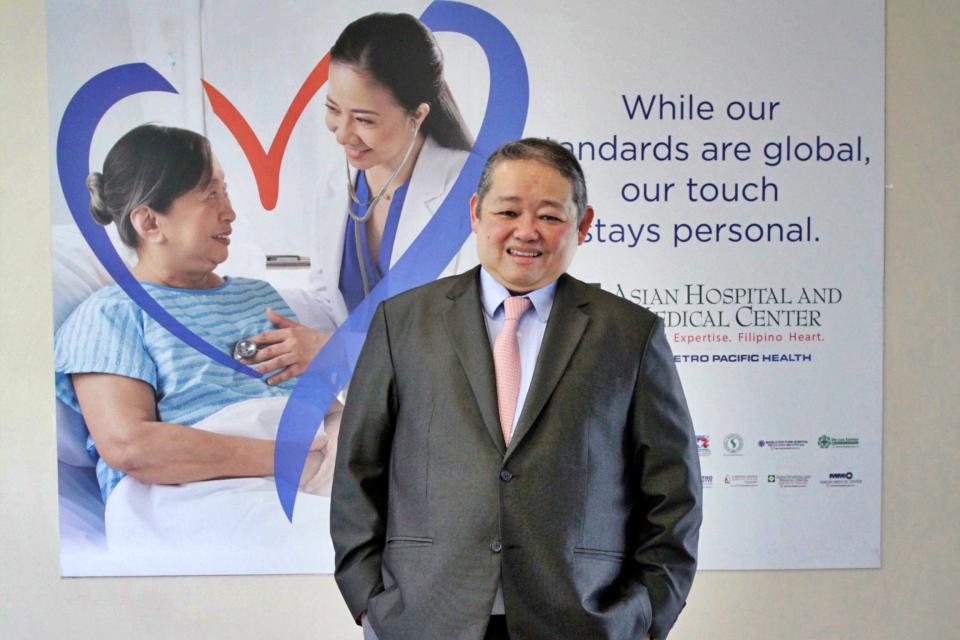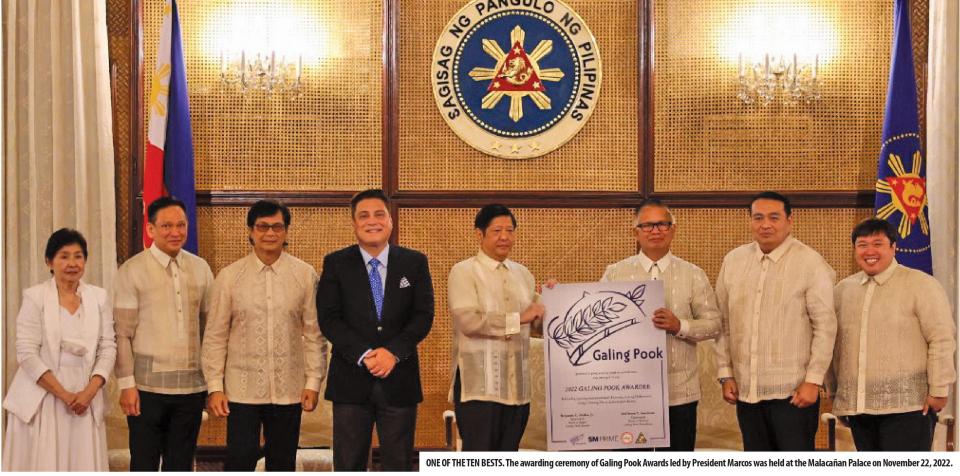PRESIDENT Ferdinand Marcos Jr. made digital transformation a core policy of his administration and so far, the Philippines has made significant strides towards achieving this goal.
It is not to say that the information and communications industry (ICT) had it easy, especially due to inflationary pressures, red tape, outdated policies and the lack thereof.
Even though the first year of a new government historically involves adjustments, careful learning and evaluation, the administration was able to pinpoint certain pain points that were addressed through sound policies and regulations.
Gaining one’s footing
“The first year was about gaining one’s footing, especially for the President’s new appointees to the DICT and other key agencies,” Better Internet Philippines Convenor Grace Mirandilla-Santos said.
During the first year of the new administration, the Department of Information and Communications Technology (DICT) had to tackle challenges that were averted by public-private collaboration.
For instance, Santos said, smaller non-telco players continue to be hobbled by outdated legal and regulatory frameworks that prevent them from expanding to more communities.
“For Internet service providers, the Congressional franchise requirement and absence of an open access policy for Internet connectivity remain as barriers. There is a lack of radio spectrum for new services, especially as mobile technologies continue to advance. Certain frequencies are in the hands of only one or two players which shouldn’t be the case so the rationale of assignments must be revisited,” she explained.
Furthermore, issues on the bureaucratic red tape, according to Converge ICT Solutions Inc. CEO Dennis Anthony Uy, persisted.
PLDT Inc. agreed and added inflation as another challenge that telcos had to face during the first year of the new administration.
Outdated laws
GLOBE Telecom Inc. Spokesperson Yolanda Crisanto noted that the Marcos administration inherited outdated laws pertaining to ICT, particularly the National Building Code where telco and connectivity are not considered basic needs as other utilities such as water and power.
“This hampers the provision of important telco infrastructure to provide for connectivity in new property developments,” she explained.
These challenges forced players to become more creative to bring connectivity closer to Filipinos, especially since the President’s marching order is to bring the Philippines to the digital age.
Transformative effect
ICT Secretary Ivan Uy acknowledged that overall, the industry had more than a handful of headwinds that it had to address, some of which were given solutions through policy extensions as well as the implementation of new regulations.
“The industry itself was actually quite dynamic and it faced several challenges,” he said, citing other issues such as the rise of cybercrimes and the outdated modes of delivery of government services to Filipinos.
But the President himself, Uy said, was hands on in ensuring that these problems were provided with solutions.
For instance, Uy said, Mr. Marcos signed into law the SIM Registration Act, the first legislation that the President sanctioned.
This, according to the ICT chief, had already reduced the number of phishing and text scams in the country.
As of last week, about 103 million SIMs have already been registered, he noted.
Streamlined processing
THE government also made it easier for industry players to build their infrastructure. Mr. Marcos recently issued Executive Order No. 32, which streamlines the processing of permits and licenses.
This was generally hailed by all industry stakeholders as a “game-changer” as this enables the faster construction of infrastructure in areas for improved connectivity.
Another area that the government focused on is the delivery of public service through digital highways.
“It has always been huge pain points for the public when they engage with the government because of the long lines, inefficiencies, filling out of application forms multiple times. A person will have to go on leave from work or school just to do a single transaction with a government agency. They waste the whole day and sometimes it’s not even enough so they waste another day — productivity goes down, and cost of doing business goes up. Not to mention the frustration,” Uy said.
Hence, the DICT together with other government agencies and local government units (LGUs) launched the eGov Super App, a one-stop single platform where frontline government agencies now provide the necessary services through a single platform.
“Instead of the people going to the government, the government went to the people. That is the game changing level of government service that the President has been able to do in his first year,” Uy said.
E-commerce platform
UY ADDED that the DICT also launched a public e-commerce platform with the Department of Trade and Industry (DTI), which enables micro, small, and medium enterprises (MSMEs) to participate in the global trade to expand their reach.
“Suddenly all our MSMEs are transformed from local producers to now exporters. So that will have a very big impact on our GDP, on the economic status of MSMEs, as well as the locality,” he said.
Furthermore, the DICT is equipping LGUs with digital tools to “make it easier for the public” to transact with their local governments.
Likewise, the ICT department also developed e-travel, which reduced friction for arriving air passengers.
Lastly, Uy added that the DICT recently launched an e-report system for the police, an automated reporting feature in the eGov Super App that enables users to quickly report incidents.
Piloted in Metro Manila, the system automatically sends the reports to nearby policemen for quicker incident response.
“That’s the transformative effect of what we’re doing in DICT in enabling these government agencies to provide enhanced digital services that will make it easier for the public,” he said.

A long industry wishlist
However, the Philippines is still far from the digital era that it envisions.
“After just one year, there are no significant efforts and achievements to rate as of yet. Better Internet Philippines and our partners, however, are happy that the new administration and the 19th Congress have put Open Access as a priority bill. So hopefully that is a positive step forward to help smaller ISPs overcome barriers to entry,” Santos said.
She called on Mr. Marcos to pass the Open Access in Internet Service Act, as this will address the legal obstacles that continue to stifle the growth of the country’s ISPs and the expansion of broadband infrastructure in the countryside.
Santos also advised the government to rationalize spectrum allocation.
“The National Telecommunications Commission [NTC] should look into whether it needs to consider harmonization and rationalization efforts to make sure various players have access to the spectrum for new technologies. As many industries, not just telecom and Internet, are affected by spectrum management, a comprehensive review of current spectrum allocation and assignment should be done,” she said.
The DICT and the NTC, she said, can consider issuing a spectrum policy framework and roadmap to help in the harmonization and rationalization of spectrum.
She added that the amendment of the Radio Control Law or Republic Act 3846 is relevant and urgent.
“Sans amendments to Act 3846, however, NTC may initially revisit Section 1 of Act 3846, which states that a legislative franchise is not required for radio stations used in areas without any means of communication. This will be very helpful for community networks in the far-flung areas that wish to set up broadband facilities, for non-commercial purposes, in their area to connect government offices, schools, and residents,” she added.
Furthermore, Santos said, there has to be a policy directive for the adoption of minimum information security standards for critical information infrastructure (CII), since Mr. Marcos identified digitalization, e-government, and e-commerce as his priorities.
“Immediately, this can be done through an executive order that will direct public CII institutions to comply with minimum standards, report information security incidents, create a computer emergency response team, and designate personnel with information security training and credentials,” she said.
For its part, PLDT wishes that the government provide telcos with the “same treatment as public utilities…which is not subject to any charges by malls or buildings in respect of facilities located in such malls or buildings that provide connectivity to or in such malls or buildings.”
“This will allow telcos to use the savings for more infrastructure for connectivity,” the company said.
In addition, the government should also consider the inclusion of a prohibition on subdivisions or LGUs banning or charging fees for, access of telcos to subscribers in subdivisions or LGUs.
Crisanto, who said the government “fostered a collaborative environment with the business sector,” noted that the government could further encourage Public-Private Partnership (PPP) engagements for several key eGovernment/eGovernance-related initiatives, as this provides a more pragmatic approach to achieving these key milestones for eGovernance.
“The Globe Group has echoed calls for the government to implement policy changes that would increase investments in the country’s digital infrastructure, citing digital platforms and services as a critical driver of economic growth,” she said.
She said Globe encourages the implementation of a policy that will ease and accelerate the construction of cellular tower sites in gated subdivisions and villages.
Furthermore, Globe seeks stronger enforcement against the rampant incidence of theft on connectivity infrastructure such as broadband cables, tower steel bars and batteries, among others. These continue to be stolen and sold openly in the black market, junk shops, and online marketplaces.
For his part, Dito Telecommunity Corp. Chief Administrative Officer Adel Tamano, who gave the government a “very high” mark in its first year, said the government could also fast track the implementation of EO No. 32.
He also called on the rationalization of spectrum user free payments, as well as the “refarming” of spectrum to “even the playing filed.”
For Converge ICT Solutions Inc., Dennis Uy said the group is looking forward to strengthening its support to the government’s national broadband program “and we hope to contribute to the efforts of the DICT in pushing forward this critical program.”
“We have made significant headway in public and private sector partnerships with regards to the digitalization of facilities and schools. We hope to continue this and aid in the creation of more smart cities and a smart nation,” Dennis Uy said.
But first, priorities
For the rest of 2023, ICT Secretary Uy said the government will prioritize the creation of e-visas, the digitalization of the national ID, and the development of a centralized e-government payment system.
“Some of them will be coming very soon,” he said.
Image credits: Bernard Testa



































